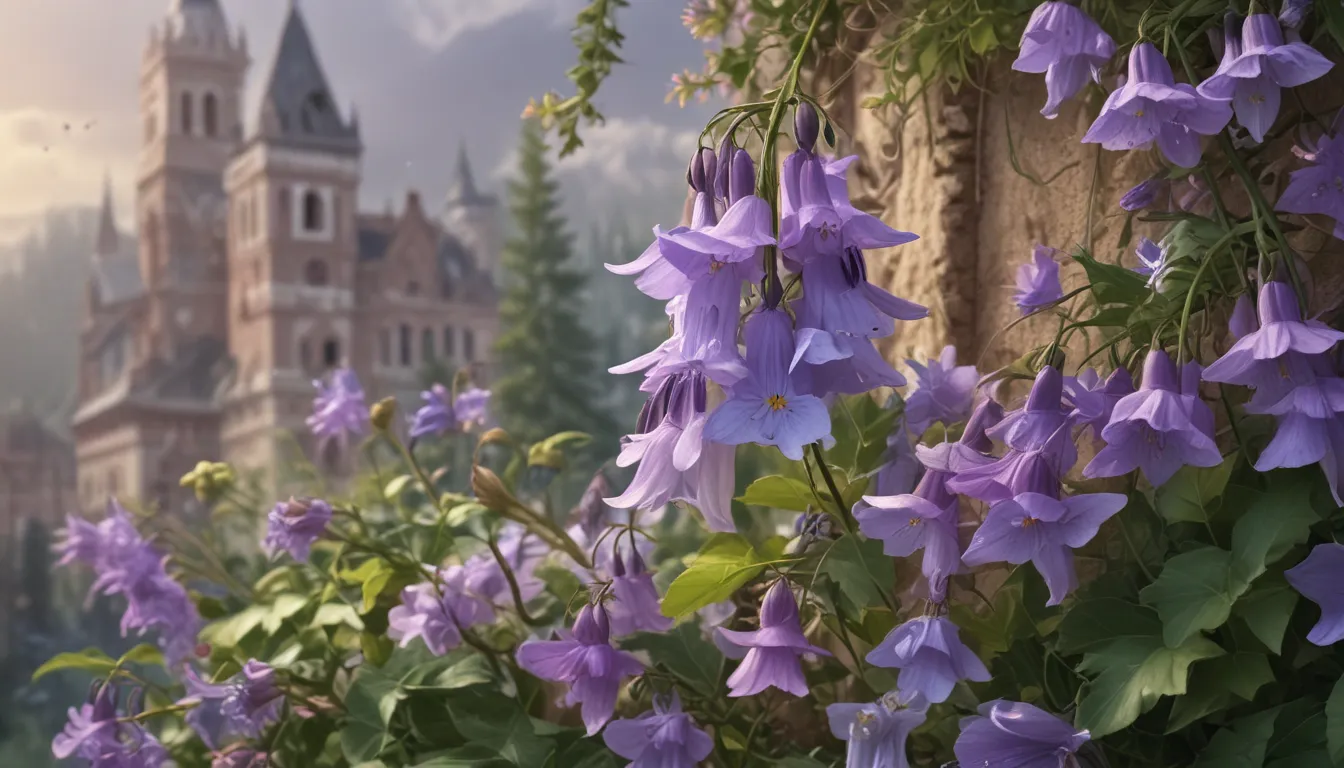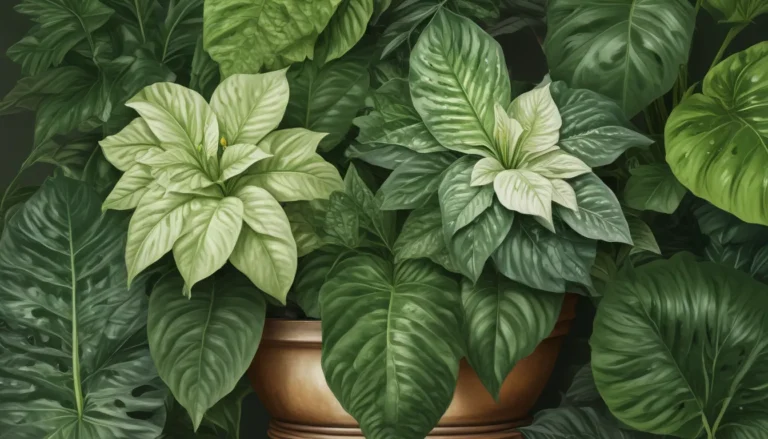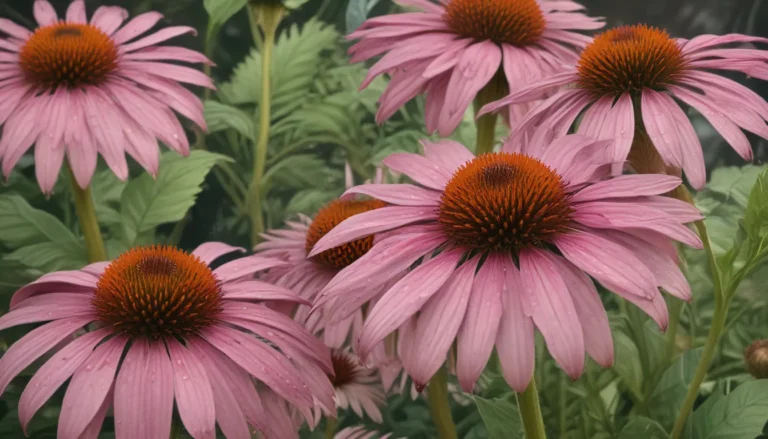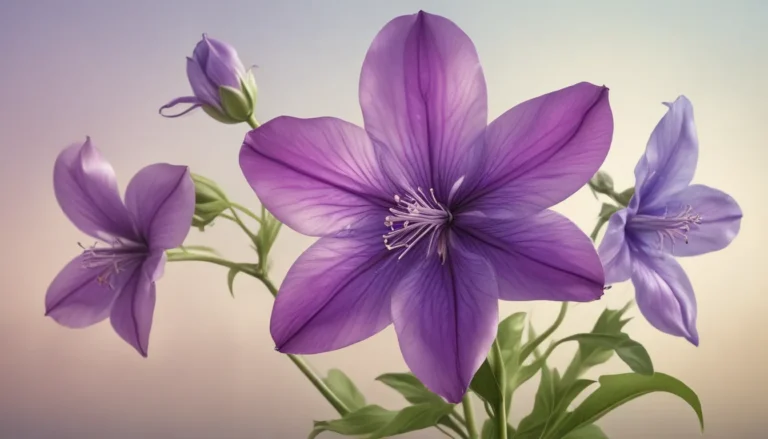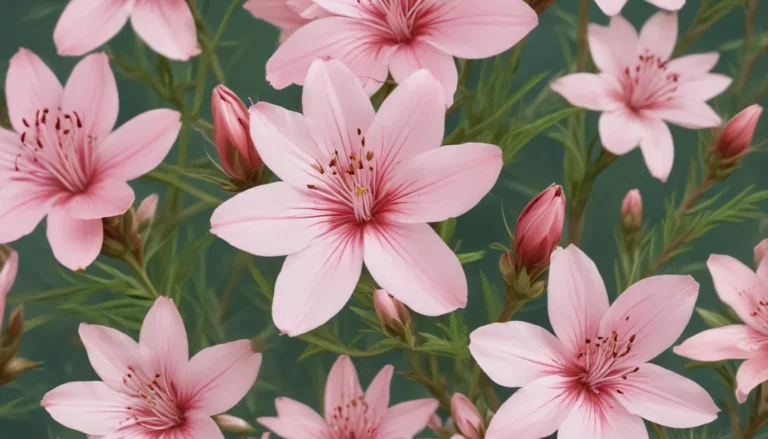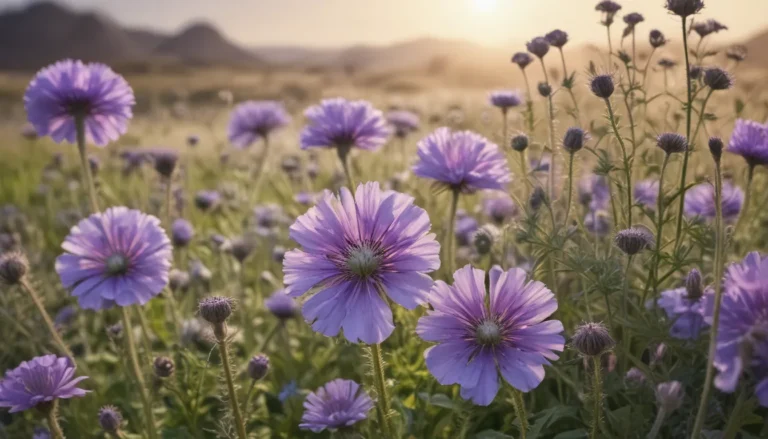The pictures we use in our articles might not show exactly what the words say. We choose these pictures to make you interested in reading more. The pictures work together with the words but don’t take their place. The words still tell you the important facts.
Campanula, also known as Bellflower, is a mesmerizing genus of flowering plants that has captured the hearts of gardeners and flower enthusiasts worldwide. In this article, we will delve into 19 captivating facts about these enchanting plants, from their origins and colors to their cultural significance and medicinal uses. Join us as we unravel the wonders of Campanula and uncover what makes these plants truly remarkable!
Unveiling the Diversity of Campanula
Campanula is a genus that offers a wide array of colors and shapes, making it a versatile and attractive addition to any garden or landscape. From the delicate bell-shaped flowers of Campanula rotundifolia to the vibrant purple hues of Campanula persicifolia, each species of Campanula brings its unique charm to the botanical world.
The Origins of Bellflower
Native to Europe and Asia, Campanula can be found in various regions, including the Mediterranean, the Alps, and the Himalayas. This wide distribution adds to the allure of these plants, showcasing their adaptability to different climates and environments.
Delving into the Culinary World of Campanula
Surprisingly, some species of Campanula are edible, with both the leaves and flowers being consumed in salads and herbal teas. This culinary aspect adds another layer of versatility to these plants, making them not only visually stunning but also gastronomically intriguing.
Embracing Nature: Attracting Pollinators
One of the remarkable features of Campanula is its ability to attract pollinators. The colorful flowers of these plants act as beacons for bees, butterflies, and other beneficial insects, creating a harmonious ecosystem in the garden.
A Deer-Resistant Delight
For gardeners facing challenges with deer browsing, Campanula proves to be a reliable choice as these plants are not preferred by deer. This deer-resistant quality makes Campanula a practical and beautiful addition to gardens in deer-populated areas.
Cultivating Campanula: Tips for Success
Campanula's adaptability extends to its growing conditions, as these plants can thrive in a range of soil types, from sandy to loamy. Additionally, their ability to tolerate different soil conditions makes them a resilient and versatile choice for gardeners of all levels.
Proliferating Perennials
Whether you’re a seasoned gardener or a newcomer to the world of plants, Campanula's ease of propagation makes it an appealing choice. These plants can be propagated through division or stem cuttings, allowing gardeners to expand their collection with ease.
A Tapestry of Blooms: Longevity in Flowers
Campanula is renowned for its long blooming period, with flowers that can grace the garden for several weeks or even months. This extended bloom time ensures a continuous display of color and charm in outdoor spaces.
Floral Artistry: Campanula in Arrangements
The beauty of Campanula extends beyond the garden, as these plants can be used in floral arrangements. Their enduring blooms make them a delightful addition to bouquets and displays, adding a touch of elegance to any setting.
Symbolism and Tradition: Campanula’s Cultural Significance
In various cultures, Campanula holds symbolic meanings such as gratitude, love, and endurance. These plants are often given as gifts to express appreciation and convey heartfelt sentiments, adding a layer of emotional depth to their botanical beauty.
The Medicinal Marvels of Campanula
Beyond their ornamental value, Campanula has been used in herbal medicine for its potential anti-inflammatory and diuretic properties. This dual nature of beauty and utility underscores the multifaceted appeal of these remarkable plants.
Sustainability in Self-Seeding
After flowering, Campanula plants have the ability to self-seed, resulting in new generations of plants in the following year. This self-seeding quality not only contributes to the sustainability of Campanula but also adds a touch of natural charm to the garden.
FAQs: Answering Your Questions About Campanula
-
What is Campanula?
Campanula, also known as Bellflower, is a genus of flowering plants known for their bell-shaped flowers and diverse species. -
How tall do Campanula plants grow?
The height of Campanula plants varies among species, with some growing as low as 5 inches and others reaching up to 3 feet in height. -
Can Campanula plants be grown indoors?
Yes, certain species of Campanula can thrive indoors as potted plants with bright, indirect sunlight and well-draining soil. -
How do you propagate Campanula plants?
Campanula plants can be propagated through division or from seeds, providing gardeners with flexibility in growing these captivating plants. -
Are Campanula flowers fragrant?
While some species may have a mild fragrance, the majority of Campanula flowers are not known for their scent. -
Are Campanula plants easy to care for?
Campanula plants are generally low-maintenance, requiring well-draining soil, regular watering, and moderate sunlight for optimal growth. -
Are Campanula plants toxic?
Campanula plants are not considered toxic to humans or pets, ensuring a safe and enjoyable gardening experience. -
Can Campanula plants attract pollinators?
Indeed, Campanula plants are known to attract pollinators such as bees and butterflies, enriching the garden ecosystem with vibrant activity. -
Are Campanula plants deer-resistant?
While not entirely deer-proof, some species of Campanula are known to be deer-resistant, providing relief to gardeners in deer-prone areas. -
Can Campanula plants be grown in containers?
Many varieties of Campanula are well-suited for container gardening, offering a convenient and colorful option for small outdoor spaces.
Embark on a Campanula Journey
In conclusion, Campanula unveils a world of botanical wonders, from its diverse colors and shapes to its cultural symbolism and medicinal properties. Whether you're an avid gardener seeking to enhance your outdoor oasis or a nature enthusiast curious about these captivating plants, Campanula offers a tapestry of possibilities. Embrace the beauty of Campanula, cultivate its charm in your garden, and revel in the captivating allure of these extraordinary plants.
Join Our Community of Knowledge
At our core, we are dedicated to delivering authentic and engaging content that celebrates the wonders of the natural world. Each fact on our platform is a testament to the collective knowledge and passion of our community members. With unwavering dedication to accuracy and quality, we strive to inspire and educate through a shared love for all things botanical. Trust in our commitment to excellence as you explore, learn, and grow with us on this enriching journey of discovery and delight.
